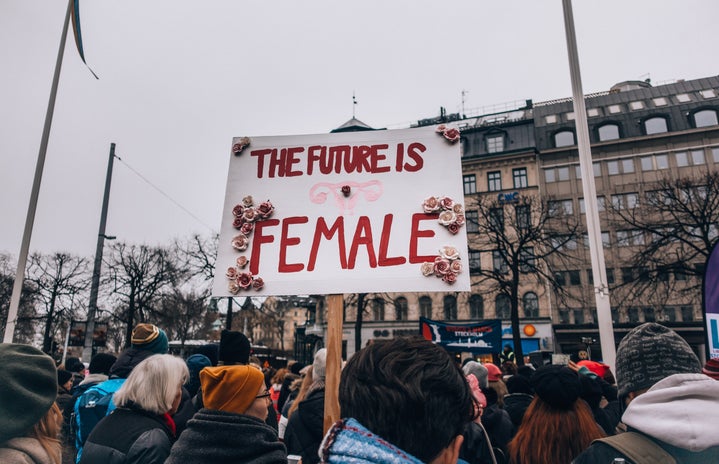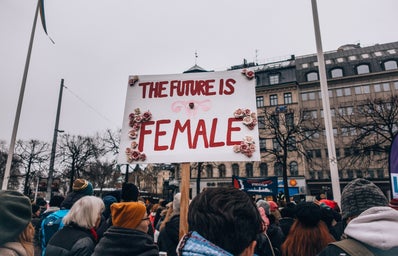On Thursday (22.10) the Polish Constitutional Tribunal announced that pregnancy terminations due to foetal defects breach Article 38 of the Polish Constitution. The decision results in a virtually complete ban on abortion in Poland.
How did it happen?
The ruling Law and Justice party (PiS), under the pressure of Roman Catholic bishops and anti-choice organizations such as Fundacja Pro (a pro-life organisation), has strongly supported an almost complete ban on abortion ever since. The debate on abortion in Poland has been present since 2016 when a citizens’ initiative to ban abortion in almost all cases reached the government. The legislation was rejected back then mainly thanks to opposition in parliament, as well as due to heavy protests of pro-choice activists in Poland.
Yet, in the autumn of 2019, another attempt to limit legal abortion was initiated. 119 MPs from Law and Justice Party (PiS), PSL-Kukiz 15’ Party and Konfederacja Party – conservative parties – initiated a legal action to investigate whether abortion in the case of foetal defects adheres to the Polish Constitution. The hearing was planned for 22.10.2020.
The decision of the Constitutional Tribunal should be independent, yet the judges in the Polish Top Court have been appointed by the ruling party with abuse of process, which led to a constitutional crisis of its own back in 2015-2016.
What does it mean?
The Top Court’s decision is most influential – the law cannot be inconsistent with the Constitution. Therefore, abortion in the case of foetal abnormality is henceforth illegal. From now on, a pregnant person can only have an abortion in two instances: in the case of rape or if the mother’s health or life is in jeopardy. This ban makes Poland a country with one of the strictest abortion laws in Europe, along with the Vatican and Malta.
Poland in 2019 had 1116 pregnancies terminated legally, and 98% of them were terminated due to foetal defects. Therefore, in practice, the ban on abortion due to foetal abnormality means a complete ban on legal abortion in Poland.
Yet, these statistics fail to represent how many abortions Polish women have. It is a very common practice to go to one of the neighbouring countries, such as Slovakia or Germany, to get an abortion. It is estimated that around 200 thousand pregnancies of Polish women are terminated yearly, either abroad or illegally.
What is happening right now?
Protesting, protesting and protesting. Enraged Polish citizens have gone out in the streets in many cities in Poland and abroad to show their frustration with this law. The demonstrations united various groups: women, farmers, taxi drivers, the LGBTQ+ community and many, many more to display their anger with the decision of the Tribunal, as well as to show their dissatisfaction with the ruling of Law and Justice Party (PiS). The protests reached an unparalleled scale. Despite numerous COVID-19 cases and deaths, which according to some are a result of Law and Justice Party incompetence, Poles are outraged and are not in fear to display their fury.
On Thursday (22.10) when the decision of the Tribunal was published, a spontaneous protest took place. It is estimated that around a thousand protestors marched through Warsaw to the private house of Jarosław Kaczyński – the leader of Law and Justice Party (PiS) and Deputy Prime Minister of Poland. Kaczyński is deemed responsible for the current situation in Poland as, despite not being Prime Minister or President, he is de facto the most influential person in the country. Therefore, the protestors decided his home be the ultimate destination to vent their anger. Protestors marched together, blocking the streets, chanting and displaying solidarity.
Similar protests took place on Friday (23.10) in many Polish cities: Poznan, Wroclaw, Krakow and, obviously, Warsaw, where it is estimated that around 15 000 people participated in the march. The police suppressed the demonstrators. 16 people have been detained. Others were attacked with tear gas, including MP Klaudia Jachira from Civic Coalition (KO). In Wroclaw, Member of the European Parliament Robert Biedroń was pushed by police officers when exercising the parliamentary mandate.
Apart from marches, other actions have been street blockades and protests in front of Law and Justice Party’s headquarters in different cities. Many demonstrations happened during Sunday masses in Roman Catholic churches to show disapproval for the influence the Catholic Church has on legislations in Poland. The scope of the protests has never been so vast. On Monday (26.10) at 4:00 PM streets of many Polish cities were blocked and on Wednesday (28.10) women will not go to work or participate in university lectures.
But for those who prefer not to leave home, many initiatives have been created online, such as an online blockade which encourages sending spam emails to MPs who have issued the legislation process to begin in the first place. The possibilities are endless and activists encourage everyone to participate.
What can I do?
First of all, donate, if you can:
- Aborcyjny Dream Team (Abortion Dream Team) is a Polish initiative to help people get an abortion whenever they need one. Money is raised to pay for advertising, which is crucial, as many Poles still do not know where to seek information about abortion. Aborcyjny Dream Team provides reliable information on how to get safe abortion pills, helps in organizing abortion abroad and supports women financially. Yet, to continue their crucial initiative, they need resources, so if you want to support their actions, donate here.
Second of all, participate:
- If you are in London, you might want to follow this Facebook profile run by a Polish activist group in London. They publish up-to-date information on protests and initiatives in London.
- You can also ask your Polish friends for any initiatives they know about! That is especially handy as most protest information is delivered in Polish only.
Third of all, participate online:
- Follow hashtags, such as #PiekłoKobiet (Women’s Hell) or #StrajkKobiet (Women’s Strike) on Twitter, Instagram and Facebook and post pictures with pro-choice banners to show solidarity with Polish women.
- Change your profile picture on social media or use different frames available e.g. on Facebook use symbols of the strike, including red lightning frames, as lightning and the colour red have become symbols of the protest.
- Repost and share it with your friends. It’s very important that the information gets to as many people as possible to spread awareness.



